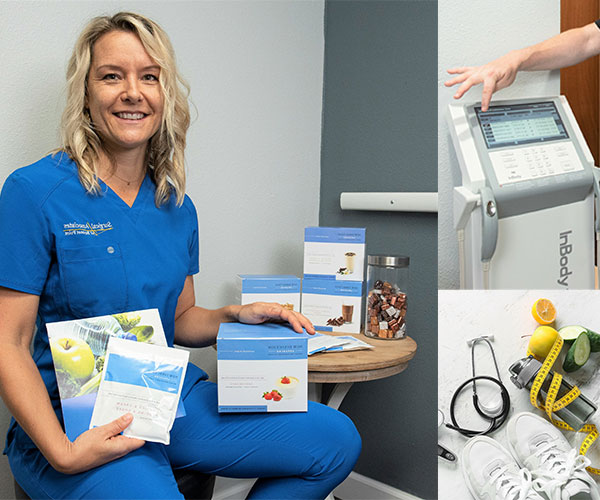- Now 2 Locations to Choose From!
- (727) 819-9107
- [email protected]

February Is American Heart Month

February is American Heart Month!
The heart and blood vessels make up your important circulatory or cardiovascular system. This complex circuit brings oxygen and nutrients to your cells while removing waste. Keeping this system healthy lowers your risk of heart disease, cardiovascular disease, heart attacks, etc.
Boosting your heart-healthy nutrients daily is key to preventing these prevalent and costly conditions. Here’s how:
- First up are Omega 3 fatty acids, specifically EPA and DHA. Known for their anti-inflammatory properties, these helpful fatty acids are found in cold-water fish like salmon, mackerel, and herring. Consuming 3-5 oz. of cold water fish 2-3x weekly is recommended.
- Monounsaturated fats can support lipid balance by decreasing LDL cholesterol and increasing HDL cholesterol. You can find monounsaturated fats in oils from olives, peanuts, canola seeds, safflower seeds, sunflower seeds, avocados, pumpkin seeds, sesame seeds, almonds, cashews, and pecans.
- Oxidative damage is a contributing factor to heart disease. Eating antioxidant-rich foods can be heart-protective. To do this, think of fruits and vegetables. Think colorful! The rainbow! Red strawberries, orange carrots, yellow bell peppers, dark green spinach, blueberries, and red cabbage.
- Polyphenols found mainly in plants have excellent anti-inflammatory antioxidant properties. Green tea, hibiscus tea, olive oil, red wine, citrus fruits, turmeric, coffee, and dark chocolate are also essential to include.
For heart-healthy recipes, check us out on FB or IG. To customize your nutrition needs, please call our office and make an appointment to see Damian!
Shop Our Nutritional Products

Damian Bramer, Nutritionist
Damian earned her bachelor’s in nutrition science from UC Davis, California and is a certified nutrition consultant. She provides nutrition guidance and education for people who suffer from a wide array of conditions such as autoimmune disease, degenerative diseases, mental illnesses, diabetes, cancer and most recently obesity. She has also provided support for specialty groups such as athletes, adolescents, and the elderly.
She believes the best way to maintain good health is to adopt eating and lifestyle habits that are sustainable for the long term. These habits should not only be manageable but enjoyable to you as well. They should support your individual energy requirement, optimize your digestive health, lower inflammation, and keep your blood sugar balanced.
Strengthening the body’s systems and improving the quality of life with whole foods nutrition is the common goal for all her patients.
